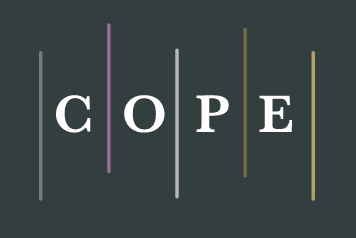Strengthening Social Cohesion, Conflict Management, and Diversity Education through the Implementation of Social Studies Education
DOI:
https://doi.org/10.58355/competitive.v4i1.131Keywords:
NCE Social Studies Curriculum, Social Cohesion, Conflict Management, Diversity Education, Curriculum EnhancementAbstract
Social cohesion, conflict management and diversity education are essential components that should be included in any educational curriculum that is designed to cater for multifaceted societies. The Social Studies curriculum that is included in the National Certificate of Education (NCE) in Nigeria is designed to meet these components. On the other hand, the effectiveness of the curriculum in terms of achieving these goals has been the subject of many discussions. For the purpose of determining whether or not the curriculum is efficient in fostering abilities related to social cohesion, conflict management, and diversity, a survey was carried out among students studying Social Studies in Colleges of Education in North-West Nigeria. A comprehensive analysis of the National Certificate in Education (NCE) Social Studies curriculum in Nigeria is presented here, focusing on both its strengths and areas that could use some work. As part of the evaluation process, the effectiveness of the curriculum in developing skills related to social cohesion, conflict management, and diversity is assessed. A number of suggestions are offered in order to improve the curriculum and better prepare future educators for the multifaceted society that exists in Nigeria. According to the findings of the study, there is a pressing need for a more direct emphasis on conflict management skills, negotiation skills, and an appreciation for diversity
Downloads
References
Barber, M., & Mourshed, M. (2007). How the world’s best performing school systems come out on top. London: McKinsey & Company.
Casad, B. J., Flores, A. J., & Didway, J. D. (2013). Using the Implicit Association Test as an unconsciousness raising tool in psychology. Teaching of Psychology, 40, 118-123. https://doi.org/10.1177/0098628312475031
Council of Europe. (2005). Concerted Development of Social Cohesion Indicators: Methodological Guide. Strasbourg: Council of Europe Publishing.
Dragolov, G., Ignácz, Z., Lorenz, J., Delhey, J., & Boehnke, K. (2013). Social Cohesion Radar: Measuring Common Ground. Bertelsmann Stiftung. Available at: https://www.bertelsmannstiftung.org
Evans, B. (2013). Types of conflict–Four classifications. Retrieved from http://www.typesofconflict.org/types-of-conflict/
Federal Republic of Nigeria. (2014). National Policy on Education 6th Edition. Lagos: NERDC Press.
Fisher, R. J. (2000). Sources of conflict and methods of conflict resolution. International Peace and Conflict Resolution, 1985. School of International Service, the American University.
Jackson, T. (2012). Teaching and learning 21st century skills: Lessons from the learning sciences. Retrieved from http://asiasociety.org/files/rand-1012report.pdf
Kazimoto, P. (2013). Analysis of conflict management and leadership for organizational change. International Journal of Research in Social Sciences, 3, 16-25.
Kolo, I. A. (2007). Reforms in the Nigerian education system: The way forward. In Ozoji, E. D. Dala, B. G., Mugu, Y., & Mustapha, A. Y. (Eds.), Nigerian education system: Which way forward? (pp. 14-45). Asaba: Nigerian Primary and Teacher Education Association (NPTEA).
Maduewesi, E. J. (2007). Universal basic education: Issues, problems and prospects. Benin City: Dasylva Influence Enterprises.
Mbachu, C. E. (2011). Curriculum reforms and innovation in Nigerian education: Issues and challenges in the 21st century. In Olubadewo, S., Onwuka, E. C., & Ajaegbo, D. I. (Eds.), Issues and challenges in Nigerian education in the 21st century (Vol. II, pp. 251-273). Onitsha: West and Solomon Publishing Coy Ltd.
Monteith, J. J., Burns, M. D., & Hildebrand, L. K. (2019). Navigating successful confrontations: What should I say and how should I say it? In R. Mallet & M. J. Monteith (Eds.), Confronting prejudice and discrimination: The science of changing minds and behaviors (pp. 225-247). Academic Press. https://doi.org/10.1016/B978-0-12-814715-3.00006-0
Morris, K. A., & Ashburn-Nardo, L. (2010). The Implicit Association Test as a class assignment: Student affective and attitudinal reactions. Teaching of Psychology, 37, 63-68. https://doi.org/10.1080/00986280903426019
Naylor, R., & Sayed, Y. (2014). Teacher quality: Evidence review. Office of Development Effectiveness: Commonwealth of Australia.
Novelli, M. (2016). Capital, inequality and education in conflict-affected contexts. British Journal of the Sociology of Education, 37(6), 848-860.
Okoro, I. F., & Afurobi, A. O. (2011). Relevant curriculum for refocusing education in Nigeria in the 21st century. In Egbule, P., Tabotndip, J. E., & Aboho, D. A. (Eds.), Refocusing education in Nigeria in the 21st century (pp. 175-191). Onitsha: West and Solomon Publishing Coy. Ltd.
Pervaiz, Z., Chaudhary, A. R., & van Staveren, I. (2013). Diversity, inclusiveness and social cohesion. Institute of Social Studies, Working Paper No. 2013-1. Retrieved from http://www.indsocdev.org/resources/ISD_Working_Paper_2013-1_Diversity_Inclusiveness_and_Social_Cohesion.pdf
Piketty, T. (2014). Capital in the 21st century. Cambridge, MA: Harvard University Press.
World Bank. (2012). Can low cost-private schools improve learning? Washington, DC: Human Development Network, the World Bank.
Downloads
Published
How to Cite
Issue
Section
License
Copyright (c) 2025 Esther Chia, Aliyu Abdulsamad

This work is licensed under a Creative Commons Attribution 4.0 International License.

























